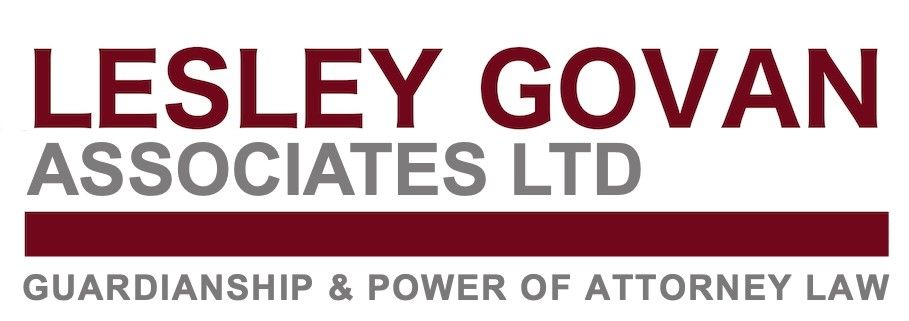By Lesley Govan
•
January 30, 2025
Imagine a loved one—your partner, parent, or child—suffering a life-altering event such as a brain injury from an accident, a diagnosis of dementia, or have a developmental condition like autism or a learning disability. Perhaps you or someone close to you is living with severe mental health challenges such as depression, schizophrenia, or bipolar disorder. Now, imagine that the authority to make critical decisions about their care, treatment, or even their freedom is out of your hands. For most people, the idea that their rights—or the rights of their loved ones—could be overridden is a terrifying prospect. But there is a safeguard: legal recourse. In Scotland, the legal aid system exists to ensure that everyone, regardless of financial circumstance, can access justice when they need it most. However, this safety net is fraying, leaving vulnerable individuals and families at risk of being failed by a broken system. The Reality of the Crisis In Scotland, Legal Aid is meant to cover the costs of accessing a solicitor for those seeking legal protection for a loved one by way of welfare guardianship, or representation in respect of mental health compulsory treatment and detention. It is also meant to cover the costs of accessing a solicitor to prepare for the future by way of preparation of a Power of Attorney for those who cannot afford to pay privately. Yet, the stark reality is that many solicitors are no longer undertaking legal aid work because it is unsustainable under the current system. Rates of remuneration for legal aid lawyers have stagnated, while the complexity and demands of the work have only increased. The Legal Aid Board ostensibly provides remuneration to solicitors undertaking legal aid work, but the process is fraught with challenges. Accounts submitted by solicitors are often subject to abatement, forcing them to argue and fight for payment for work already completed. This overly cumbersome and time-consuming process adds unnecessary strain to solicitors, who are already operating at significantly lower rates of pay compared to their privately funded counterparts. The result is a system that undervalues the essential work of legal aid practitioners and creates a disincentive for solicitors to take on such cases, potentially compromising access to justice for vulnerable individuals. This means fewer lawyers are available to take on cases that require expertise, empathy, and significant time investment. For individuals facing life-altering scenarios, this is not just an inconvenience; it’s a matter of life and dignity. Without legal aid solicitors, families are left with no choice but to pay exorbitant private fees—often ranging from £3,000 to £5,000—or go without representation entirely. For many, this cost is insurmountable, leaving them powerless to make or challenge decisions about care, treatment, or their fundamental rights. Who Is Affected? This crisis affects real people in profoundly personal and painful ways: Parents of children with learning disabilities may struggle to arrange the support their child’s needs when transitioning to adult services. Caregivers of individuals with dementia may face battles over guardianship, ensuring their loved one’s care aligns with their wishes. Patients held in hospital under mental health legislation may lose their freedom without proper legal representation to examine the legality of their detention. This list is not exhaustive and these are not hypothetical scenarios—they are lived realities for many families in Scotland. Why Access to Justice Matters Access to justice is the cornerstone of any fair and equitable society. Without it, the most vulnerable are left at the mercy of systems that may not act in their best interests. The legal aid system exists to ensure that no one is denied the ability to advocate for themselves or their loved ones because of financial hardship. When that system fails, society fails its most vulnerable members. What Needs to Change? To fix Scotland’s broken legal aid system, we need urgent action: Increased Investment: Legal aid rates must be revised to reflect the true cost of providing high-quality legal representation. Attracting New Talent: The legal profession must be incentivised to train and specialise in legal aid work, ensuring a steady pipeline of skilled solicitors. Public Awareness: Policymakers and the public must recognise the critical role of legal aid in upholding justice and equality. Conclusion The erosion of Scotland’s legal aid system is a silent crisis with devastating consequences for individuals and families across the country. Access to justice is not a privilege; it is a fundamental right. Without immediate intervention, more and more people will find themselves priced out of justice, forced to navigate complex and life-altering legal issues alone. I continue to offer legal aid at the present time, but the situation is becoming increasingly unsustainable. Rising costs, bureaucratic hurdles, and a lack of necessary reforms are making it difficult to provide this essential service to those who need it most. Without meaningful changes, I will be left with no choice but to step away from offering legal aid, despite my deep commitment to helping individuals navigate the justice system. This is not a decision I take lightly, but without support and improvements to the current system, it will become impossible to continue. I urge policymakers and stakeholders to recognise the urgency of this issue before access to justice is further eroded. We must demand better—for ourselves, for our loved ones, and for the society we aspire to be. A Scotland that values justice must also value those who make it accessible. The Law Society of Scotland are running a #LegalAidMatters campaign and you can show your support by adding your name to the ledger. Please take a moment to click the link and add your name—it only takes a few seconds. Sharing the link widely can make a huge difference. You never know when you, or someone you love, might be the one affected. Read a recent Law Society article here:- https://www.lawscot.org.uk/members/journal-hub/articles/legal-aid-matters/ Sign the pledge here:- https://www.lawscot.org.uk/for-the-public/what-a-solicitor-can-do-for-you/legal-aid/legal-aid-pledge/

